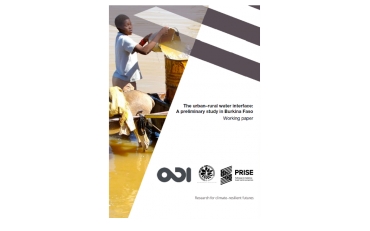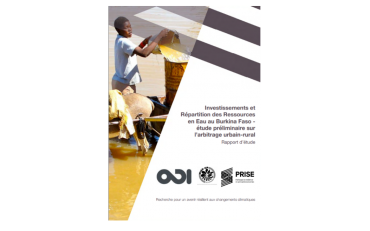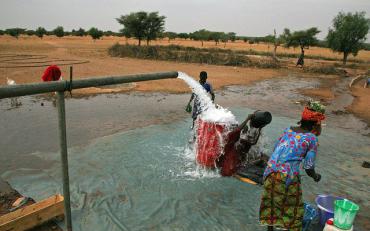Urban-rural water allocations in semi-arid lands – the case of Burkina Faso

Image by Rajeshree Sisodia/PRISE
The principle that water for drinking and domestic use takes precedence over other water uses is commonly enshrined in national laws and policies. Urban areas with substantial residential populations expect to receive a priority water allocation and, accordingly, as cities have grown, examples of water transfers and ‘reallocations’ from rural to urban areas are becoming increasingly common.
However, cities include a range of different types of water users – commercial and industrial as well as residential – and the issue arises as to the status of city water entitlements vis-à-vis the water rights of rural areas where many people in developing countries live – the great majority (80% approx.) in Burkina Faso’s case. Thriving rural communities need water for productive uses, as well as for drinking and the home. Insufficient rural access may be a ‘push’ factor in migration to urban areas, thereby increasing water demands in fast-growing cities and towns.
This preliminary report argues that, in semi-arid zones, which face climate variability with the likelihood of increasing pressure on water resources, decisions on water management require explicit strategies for the allocation of water resources between urban and rural areas. Those water strategies are needed to underpin national progress in economic and social development, in the cities and rural areas. Furthermore, transparent and inclusive decision-making processes are needed to assess different infrastructure options, including the anticipation and analysis of trade-offs between different water uses. Climate-resilient investment portfolios must also combine built and ‘natural’ infrastructure - both civil engineering and natural management.





